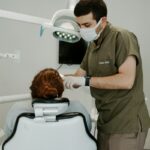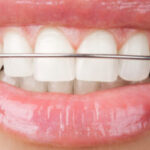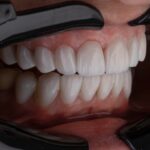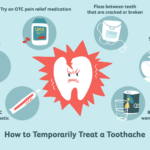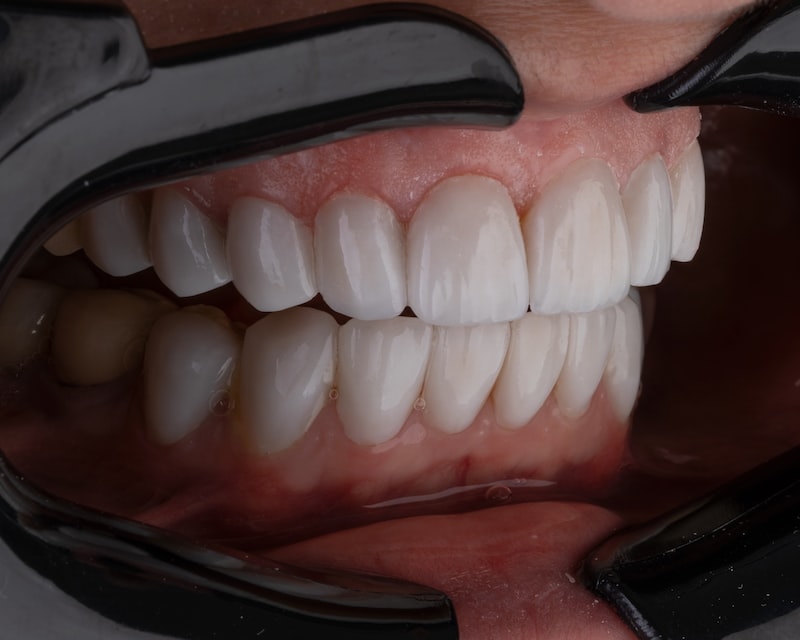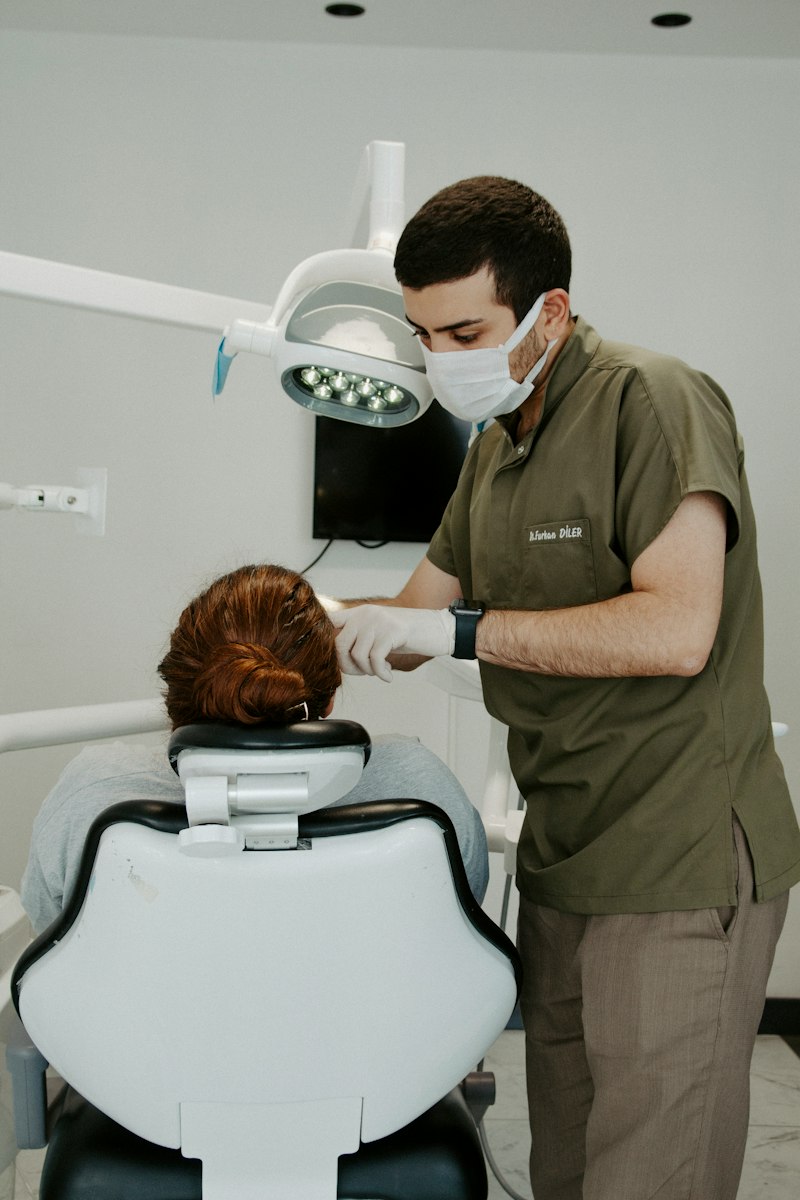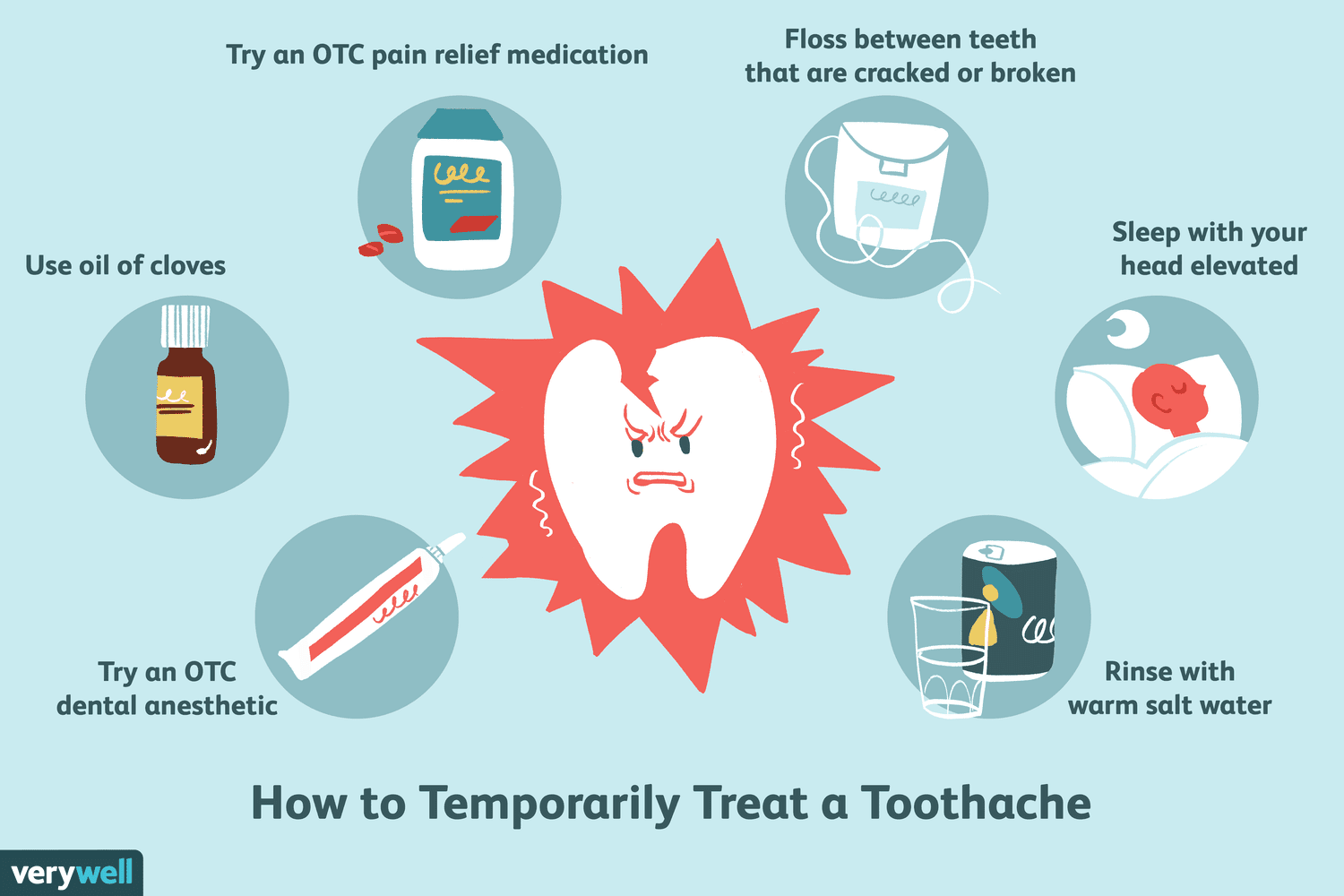Gum disease is primarily caused by poor oral hygiene practices. When we neglect regular brushing and flossing, plaque builds up on our teeth. This sticky film harbors harmful bacteria, which, if left untreated, can infect the gums and lead to gum disease. Additionally, factors like smoking, hormonal changes, diabetes, and certain medications can increase the risk of developing gum disease.
So, how do you know if you have gum disease? Pay attention to warning signs such as swollen and tender gums, persistent bad breath, loose teeth, and gums that easily bleed. If you experience any of these symptoms, it’s crucial to seek professional dental care promptly. Early detection and treatment are key to preventing further damage to your gums and teeth.
Fortunately, there are effective treatments available for gum disease. The first line of defense is a professional dental cleaning called scaling and root planing. This procedure removes plaque and tartar from above and below the gum line, allowing the gums to heal. In more advanced cases, surgical interventions like flap surgery or bone grafting may be necessary to restore gum health.
Preventing gum disease is possible with proper oral hygiene practices. Make sure to brush your teeth at least twice a day using a soft-bristled brush and fluoride toothpaste. Don’t forget to floss daily to remove plaque from between your teeth and along the gum line. Regular visits to your dentist for check-ups and cleanings are essential to catch early signs of gum disease and prevent its progression.
Gum disease is a significant concern that can impact your oral health if left untreated. By maintaining good oral hygiene habits and seeking professional care promptly, you can protect your gums and teeth from this silent threat. Remember, prevention is always better than cure when it comes to gum disease. Take control of your oral health today to ensure a beautiful smile for years to come.
The Silent Epidemic: Uncovering the Devastating Impact of Gum Disease
Gum disease is a silent epidemic that often goes unnoticed, but its impact can be devastating. Did you know that millions of people worldwide suffer from gum disease without even realizing it? This common oral health condition not only affects your teeth and gums but can also have far-reaching consequences for your overall well-being.
One of the most alarming aspects of gum disease is how easily it can go undetected. At first, you might experience mild symptoms like redness or swelling in your gums, bad breath, or bleeding while brushing. These signs are often overlooked or mistaken for normal occurrences. However, as the disease progresses, more serious consequences arise.
As the infection spreads, it can damage the structures that hold your teeth in place, causing them to become loose or even fall out. Moreover, research has linked gum disease to various systemic health issues such as heart disease, diabetes, respiratory problems, and even certain types of cancer. This connection underscores the importance of maintaining good oral hygiene and seeking treatment if you suspect gum disease.
Prevention and early intervention are key when it comes to combating gum disease. Regular brushing and flossing, along with routine dental check-ups, can help remove plaque and tartar buildup, reducing the risk of infection. If gum disease is detected, your dentist may recommend deep cleaning procedures like scaling and root planing to remove bacteria from below the gumline.
Gum disease may be silent, but its impact is far from silent. By raising awareness about this pervasive condition and taking proactive steps to prevent and treat it, we can protect our oral health and overall well-being. Don’t let gum disease silently wreak havoc on your smile and health—take action today!
Breaking the Chain: Groundbreaking Research Reveals New Preventative Measures for Gum Disease
Are you tired of dealing with gum disease? Do you want to take control of your oral health and break free from its clutches? Well, get ready for some exciting news! Recent groundbreaking research has uncovered new preventive measures that can help you keep gum disease at bay.
Gum disease, also known as periodontal disease, is a common dental problem that affects millions of people worldwide. It occurs when bacteria in plaque build up on your teeth and gums, causing inflammation and infection. If left untreated, it can lead to tooth loss and other serious health issues.
But fear not! Thanks to innovative research, we now have a better understanding of how to prevent and manage gum disease effectively. One key discovery is the role of oral hygiene habits in keeping our gums healthy. Regular brushing and flossing are essential for removing plaque and bacteria, thereby reducing the risk of gum disease.
In addition to good oral hygiene practices, researchers have found that certain lifestyle changes can make a significant difference in preventing gum disease. Maintaining a healthy diet rich in fruits, vegetables, and whole grains provides essential nutrients that support gum health. Avoiding tobacco products and limiting alcohol consumption can also play a crucial role in reducing the risk of gum disease.
Furthermore, recent studies have identified the potential benefits of probiotics in preventing and treating gum disease. Probiotics are beneficial bacteria that can help restore balance in the oral microbiome, inhibiting the growth of harmful bacteria responsible for gum disease. Incorporating probiotic-rich foods like yogurt and fermented vegetables into your diet or taking probiotic supplements may offer an additional layer of protection against gum disease.
Imagine breaking free from the chains of gum disease and enjoying a healthy smile. With these cutting-edge preventive measures, you can take charge of your oral health and put gum disease behind you. So, start implementing these research-backed strategies into your daily routine and discover the immense benefits they can bring.
Remember, prevention is always better than cure. By incorporating proper oral hygiene habits, adopting a healthy lifestyle, and exploring the potential of probiotics, you can pave the way to a future free from gum disease. Embrace the groundbreaking research and take the first step towards a healthier, happier smile today!
A Smile’s Worst Nightmare: How Gum Disease Can Lead to Tooth Loss
Hey there! Have you ever wondered why your dentist keeps reminding you to take good care of your gums? Well, let me tell you a secret – gum disease is a smile’s worst nightmare! Yes, you heard it right. Gum disease can lead to tooth loss, and that’s something no one wants to experience.
Let’s dive into the details and understand how gum disease can wreak havoc on your pearly whites. Picture this: your gums are like the foundation of a house. If the foundation is weak or damaged, the entire structure is at risk of collapsing. Similarly, if your gums are unhealthy, your teeth are in danger.
So, what exactly is gum disease? Gum disease, also known as periodontal disease, is an infection that affects the tissues and bones surrounding your teeth. It all starts with the buildup of plaque, a sticky film containing bacteria, on your teeth. If not removed through regular brushing and flossing, this plaque hardens and turns into tartar, which can only be removed by a professional dental cleaning.
However, if left untreated, gingivitis can progress into a more severe form of gum disease called periodontitis. In periodontitis, the infection spreads below the gum line, causing the gums to pull away from the teeth and forming pockets. These pockets become a breeding ground for bacteria, resulting in further damage to the gums, bone, and connective tissues that hold your teeth in place.
As the infection progresses, your teeth may start to loosen and shift, eventually leading to tooth loss. Losing a tooth not only affects your appearance but also impacts your ability to chew properly and speak clearly. Moreover, it can have a negative impact on your self-esteem and overall quality of life.
Now that you know how gum disease can be a smile’s worst nightmare, it’s time to take action! Practice good oral hygiene by brushing your teeth twice a day, flossing daily, and using an antibacterial mouthwash. Don’t forget to schedule regular check-ups with your dentist for professional cleanings and early detection of any signs of gum disease. Remember, prevention is key when it comes to maintaining a healthy smile!
Gum Disease and Your Overall Health: The Surprising Link You Need to Know
Introduction: Did you know that your oral health can have a significant impact on your overall well-being? It’s true, and one of the most surprising connections is between gum disease and your general health. In this article, we will explore the fascinating link between gum disease and its potential effects on various aspects of your body. Prepare to be amazed as we uncover the hidden connection that you need to know.
The Hidden Dangers of Gum Disease: Gum disease, also known as periodontal disease, is a common condition that affects the gums surrounding the teeth. While it may seem like a localized problem, research has revealed an intriguing correlation between gum disease and other health conditions. So, what makes gum disease so dangerous?
Oral-Systemic Connection: The mouth serves as a gateway to the rest of the body, and when gum disease strikes, harmful bacteria can enter the bloodstream. Once in circulation, these bacteria can travel to different organs and systems, potentially triggering or worsening various health issues. This connection between oral health and systemic health is referred to as the oral-systemic link.
Heart Health: One surprising link between gum disease and overall health lies in cardiovascular problems. Studies suggest that the bacteria from gum disease can contribute to the development of heart disease. The presence of oral bacteria in the bloodstream can cause inflammation in the blood vessels, leading to atherosclerosis and increasing the risk of heart attacks and strokes.
Diabetes: If you have diabetes, maintaining good oral health becomes even more critical. Gum disease can make it harder to control blood sugar levels and increase the risk of complications associated with diabetes. Conversely, uncontrolled diabetes can compromise the immune system, making it easier for gum disease to develop and progress.
Respiratory Health: Another unexpected connection exists between gum disease and respiratory health. Bacteria from infected gums can be inhaled into the lungs, potentially leading to respiratory infections such as pneumonia. This is particularly concerning for individuals with pre-existing respiratory conditions like asthma or chronic obstructive pulmonary disease (COPD).
Conclusion: The connection between gum disease and overall health is truly astounding. From cardiovascular problems to diabetes and respiratory health, taking care of your gums can have far-reaching benefits. Understanding this link underscores the importance of maintaining good oral hygiene practices and visiting your dentist regularly. Your smile is not only a reflection of your oral health but also a window to a healthier you.
